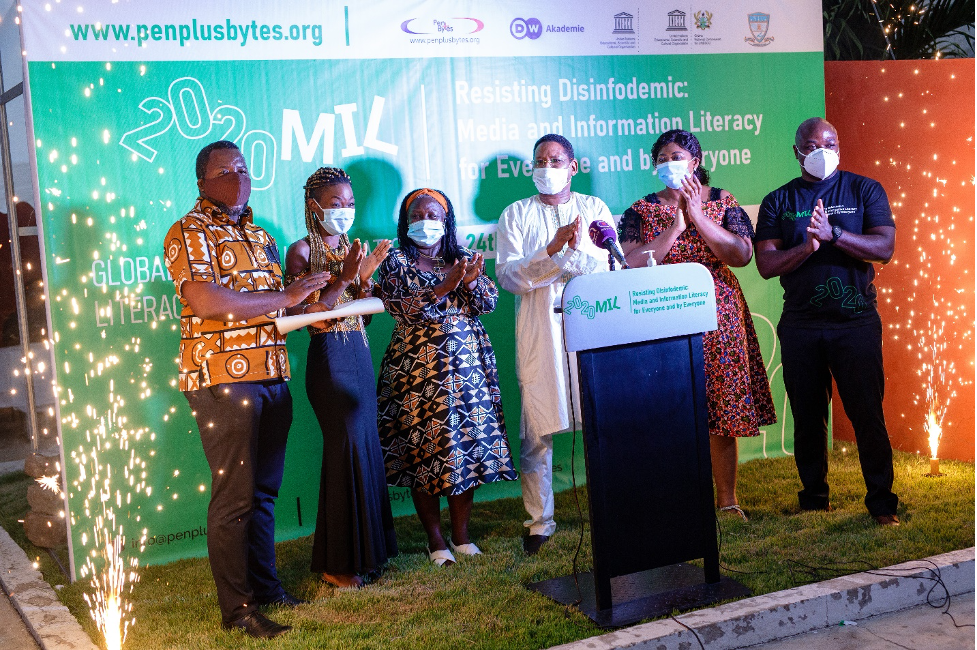
SICS Participates in 2020 Media And Information Literacy Week
Tue, 12/15/2020 - 12:11 — infocomm

The School of Information and Communication Studies, participated in the launch of the 2020 Global Media and Information Literacy Week Celebration in Ghana. The event, which was held at the offices of Penplusbytes under the auspices of UNESCO, was attended by representatives from UNESCO, DW Akademie, University of Ghana, Ghana Institute of Journalism the Ghana National Commission for UNESCO, NCCE, and other Civil Society Organizations. This kick started various activities commemorating this year’s Global Media and Information Literacy Week on the theme, Resisting Disinfodemic: Media and Information Literacy for Everyone and by Everyone.
Launching the celebration, UNESCO’s Country Head, Mr Abdulrahmane Diallo said UNESCO’s mission is to engender media and information literate societies through a comprehensive strategy which includes preparation of a model Media and Information Literacy Curriculum for teachers, the facilitation of international cooperation, development of guidelines for preparing national MIL policies and strategies among other initiatives.
He noted that the COVID-19 pandemic has brought about a range of disinformation being churned out by different actors which negatively affects lives and livelihoods around the world and this need focused collaborative efforts of all stakeholders to fight against it. “Falsehoods and misinformation have proven deadly and sowed confusion about life-saving personal and policy choices,” he said.
He therefore commended Penplusbytes and its partners for setting the pace in championing MIL in Ghana especially among the youth who are actively engaged in the production and use of various information and content from the highly polarised traditional and new media platforms that currently exists.
Dean of the School of Information and Communication Studies, Prof. Audrey Gadzekpo, said In countering disinformation, the traditional media should position themselves as authenticators of true and fake news since social media is churning out a lot of fake news. According to Prof. Gadzekpo, it is the only way the traditional media can be more relevant. “The way the traditional media can be relevant will be to position yourselves as those who people come to verify whether a news item is true or not,” she said.